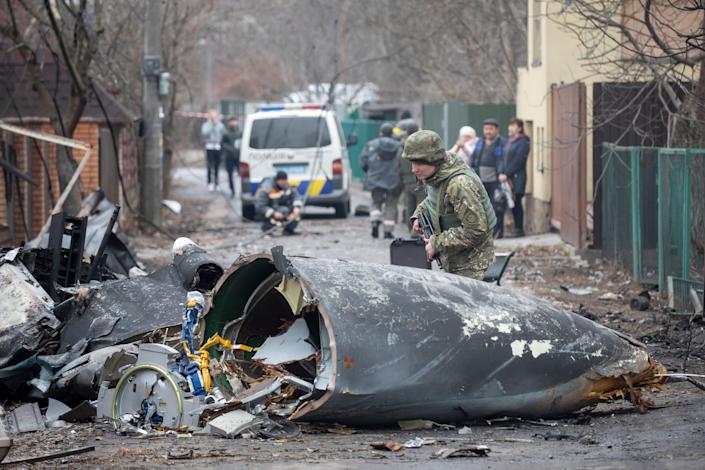The past two years have redefined our meaning of the word crisis, all the way from COVID to Crimea and everything in between.
As we wait with baited breath for the COVID foghorn call to endemicity, Vladimir Putin has been strategically planning an invasion of Ukraine. That happened this week and with it ushered in Europe’s and darkest hour since World War II. The attack brought a disastrous end to weeks of failed diplomatic efforts by Western Leaders, as their worst fears about the ambitions of Putin have been realized.
Putin, the former KGB spy with 16 years of foreign intelligence experience, is rewriting history by launching an all-out attack to erase the democratic freedoms and independence of a sovereign nation.


The collapse of the USSR left him traumatized and obsessed by revenge, as he saw democracy to be an evil tool for the advancement of Western objectives. He sees Ukraine as a vast stretch of land, whose heartbeat circulates the red blood of USSR, and anything less is tantamount to disobedience, to which the highest penalties must be paid and pose a challenge to the U.S.-led world order and what was once known as the free world.
Today we stand on the precipice of another world war, knowing all too well the threat of nuclear ambitions could result in global calamity. It’s too early in the war to judge Putin’s end game, but a quick look at history and we can see that global dominance features high on his list of priorities.


If you think the crisis in Ukraine is far from home, then take a moment of pause because the history of Russian ambitions through the lens of Vladimir Putin is about to repeat itself and shake the entire global order.
The Caribbean has flirted in the past with Russian ambitions of driving a communist agenda on the doorsteps of America.
The 1962 Cuban missile crisis and the 1983 Grenada invasion serve as reminders that Russian aggression towards the Western hemisphere represents a clear and present danger, and the unfolding of events today in Ukraine , should resurrect feelings of concern and alarm.
Take, for example, the recent visit of Russian Deputy Prime Minister Yury Borisov to Venezuela, Nicaragua and Cuba earlier this month to discuss trade and economic cooperation. While the West was focused on urgent diplomatic efforts to avert war, Russian diplomacy was getting a vote of confidence from Latin American partners in an effort to subvert any sanctions that will most definitely follow its invasion of Ukraine.
More: Russian invasion of Ukraine complicates ISS, but partnership still stable
More: Russia pounds Kyiv; official urges Ukrainians to make Molotov cocktails – live updates
If a new proxy war breaks out between Washington and Moscow through some sort of U.S.-funded insurgency in Ukraine, then you can certainly bet that Moscow would hedge its bets against such actions, by leveraging its influence with corruptible Latin American governments who harbor anti-American sentiments. Such leverage could take the form of joint military exercises and the establishments of Russian military outposts.
Russia has become a crucial ally of Venezuela’s dictatorship by propping it up with some 200 agreements and could resort to placing military infrastructure not just there but also in Cuba, much to the agitations of America and its allies.


This week’s invasion of Ukraine caught many by surprise, with those hoping for a last minute reprieve sitting uneasy. Latin America and the Caribbean could add to that sense of unease if exploited by renewed Russian aggression. As we have now seen, Putin is not bluffing and our response to his ambitions needs to be measured accordingly and not blurred along the lines of international relations ambiguity.
Dr. Sanjay Pooran is a specialist in infectious disease and public health. He is a fellow at The Geneva Centre for Security Policy and explores the intersection between security, global health and terrorism.
Support local journalism and become a subscriber. VIsit floridatoday.com/subscribe
This article originally appeared on Florida Today: Think Russian aggression is limited to Europe? Think again | Opinion




